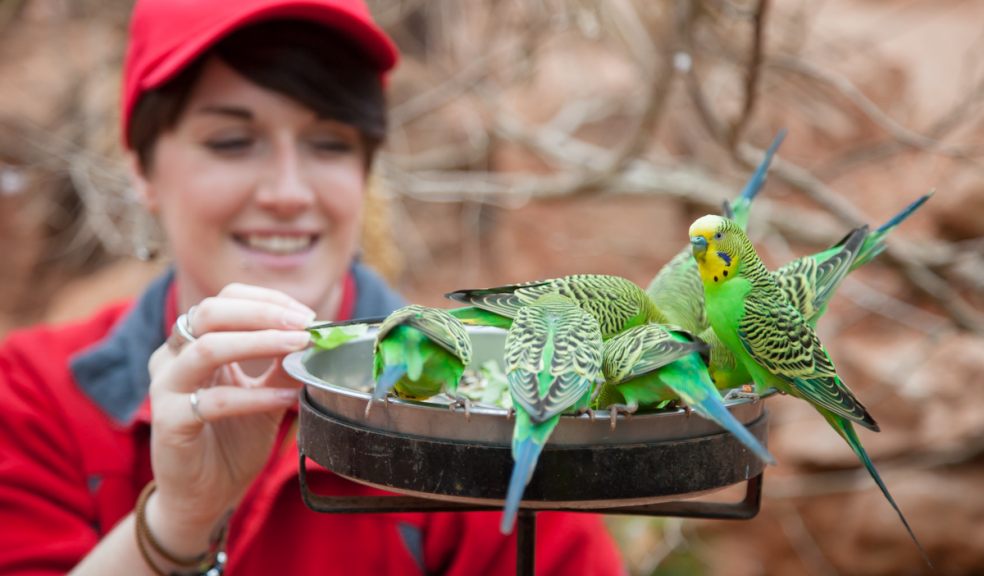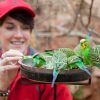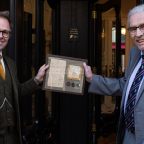
Spotting the betcherygarr
Most people visit Paignton Zoo to see rare and unusual animals - species they may never have seen before from exotic habitats around the world. So it comes as a surprise to discover that the star of Paignton Zoo’s new guest encounter is also the world’s most popular pet bird – the budgie.
The Australian budgerigar may seem like an odd choice for a Zoo talk. Group Education Manager Steve Nash explains why sometimes it’s the familiar species that can reveal the biggest surprises:
“The new encounter has been put together to try and encourage guests to see that every species has a story, and even the most familiar of animals can surprise us. Did you know, for example, that the name budgerigar is believed to come from an old Aboriginal word – betcherygarr – that means good eating?”
Before you start eyeing your feathered friends up for lunch, allow Steve to explain…
“Budgies in the wild live in huge flocks in the Australian bush, often tens of thousands of birds together. It’s a tough life, they have to be migratory and fly huge distances to find food. It’s this behaviour that gave them their name – if you follow wild budgies, they’ll lead you to food, hence ‘good eating’.
“Where you find food you’ll also find water – which is essential if you’re stuck in the middle of the Australian outback. Totnes-born explorer William Wills died in the Australian desert in 1861 – the fact that the familiar budgie can succeed in environments where humans often cannot is a great example of why these little birds are so amazing.”
Zoo staff want guests to reconnect with nature – to stop and look rather than glance and move on. Steve again: “The budgies are just one of the species in our amazing Desert House - if you spend a few moments you’ll quickly realise that there’s a soap opera of life going on around you. Birds lead busy and fascinating lives and you’ll soon see that they’re not just flying around randomly.
“The great thing about bird watching is that you can do it anywhere - on a lunch break, in the playground, at home in your garden, or of course at Paignton Zoo. We say anywhere but actually there are places where it’s harder than it used to be to watch birds because the birds aren’t there anymore. Here at the Zoo we’re supporting a Europe-wide conservation project called Silent Forest which aims to conserve endangered song birds in Asia threatened by collection from the wild for the pet trade.
“A visit to the Zoo is a great way of supporting our conservation work, not just with birds but with other species, too. Encouraging nature in your garden is an easy way to get involved and help more. Hanging up some bird feeders, putting up nest boxes and encouraging insects to your garden with the right plants are all fantastic ways to make a difference. 2018 is Paignton Zoo’s year of Nearby Nature and we’ll be running a range of events this year to show you how to help the native species all around you.”
Paignton Zoo’s Aridland Encounter talk is in the Desert House every day at 12.30 during the Easter holidays.




















